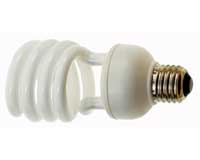 |
Washington (UPI) Dec 8, 2009 Smart-grid networks that depend heavily on technology both for energy efficiency and for better management of electricity consumers are vulnerable to cyberattacks that can endanger entire cities, industry findings show. Ann Whyte, a spokeswoman for Defense Support Services LLC (DS2), a Lockheed Martin and Day & Zimmermann company, said suppliers that are planning to install electricity smart meters in every home by 2020 need to adopt new power-line communications technology to ensure the grids remain safe from cyberattacks. The United States marked October as a month of cybersecurity awareness, but analysts said the rest of the world still needs to catch up on the full implications of new security risks posed by technologies that are open to attack by hostile forces. Whyte said new technology currently being developed aims to ensure that smart grids' two-way communication remains safe from hacking. As the smart grids expand, analysts said, their vulnerability to cyber terrorism is seen to be increasing. One of the key elements of the future smart-grid networks will be increased communication between smart meters and other energy-using devices. The two-way flow of electricity and real-time energy pricing information will document and make available details of energy used by each device and other advanced applications, allowing consumers to save energy and reduce their carbon footprints. This will enable utilities to combat fraud, introduce effective real-time management of the grid and slow down their investment in new energy generation capabilities, a DS2 study said. However, any vulnerability in the smart grid could have an impact on that utility's energy distribution grid, which could result in power cuts, and could be used by hackers and fraudsters to gain access to consumers' private personal information. So, alongside high-speed communications and robust features, what the smart grid also requires is cybersecurity -- the protection required to ensure the confidentiality, integrity and availability of the electronic information communication system. "What does the expansion of the smart grid mean in terms of security? Stringent management and protection of components within these infrastructures must be addressed," DS2 said. It said that expansion of the networks increases the complexity of the grid, which could expose it to potential attackers and unintentional errors. It also increases the number of entry points that can be exploited. Among other risks cited by DS2 is the potential for compromise of data confidentiality, including the breach of customer privacy. DS2 said it is developing power-line communications for smart-grid applications and is tackling this security threat by developing state-of-the-art security standards. Its next-generation smart-grid technology has been specifically designed to prevent attacks on the smart-grid integrity. Analysts said the DS2 warnings meant that exposure to cyberattacks was no longer confined to computer networks. Instead, almost any nationwide network that uses computers can be exposed to hostile action. Share This Article With Planet Earth
Related Links Powering The World in the 21st Century at Energy-Daily.com
 China a bright spot on climate with energy-saving bulbs
China a bright spot on climate with energy-saving bulbsBeijing (AFP) Dec 9, 2009 As the world's top producer of energy-efficient light bulbs and a potentially massive market for them, China is seen as pivotal to greater worldwide acceptance of environmentally-friendly lighting. While also the largest producer of less-efficient incandescent bulbs, China is moving with the times as the classic light bulb, which produces more heat than light, is slowly being switched off. ... read more |
|
| The content herein, unless otherwise known to be public domain, are Copyright 1995-2009 - SpaceDaily. AFP and UPI Wire Stories are copyright Agence France-Presse and United Press International. ESA Portal Reports are copyright European Space Agency. All NASA sourced material is public domain. Additional copyrights may apply in whole or part to other bona fide parties. Advertising does not imply endorsement,agreement or approval of any opinions, statements or information provided by SpaceDaily on any Web page published or hosted by SpaceDaily. Privacy Statement |